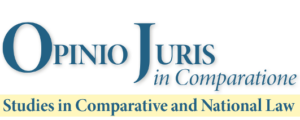ETHICS LOST IN TRANSLATION: TRUSTWORTHY AI FROM GOVERNANCE TO REGULATION
Authors: Irina Carnat
ABSTRACT
The policy reaction of the European Union to the societal quest for fairer and more transparent Artificial Intelligence (AI) was immediate, yet partially unsatisfactory. Given the inadequacy of the liability regime and the absence of appropriate regulation of AI, the appointed High-Level Expert Group turned to ethics to develop the notion of Trustworthy AI. Generally, AI ethics was first tasked with providing guidance for global consensus on principles for AI governance. However, such ethics guidelines lack appropriate enforcement mechanisms, hence the unsuitability to provide clear guidance for AI regulation, leading to a potential phenomenon of ‘ethics washing’. The present article unveils the quintessentially political nature of the ethics guidelines, arguing that the strictly ethical nature of the guidelines got lost in translation in light of the proposed EU regulation of AI. Instead, it is claimed that the principle of accountability bridges the gap between the ethics guidelines and the regulatory framework, as shown by a first comparative glance at the US-proposed Algorithmic Accountability Act and the EU-proposed AI Act through the lenses of the recently proposed amendments concerning foundation models, thus providing the necessary enforcement mechanism to achieve trust in AI.
Keywords: Trustworthy AI - Algorithmic accountability - AI regulation - AI governance - AI ethics

